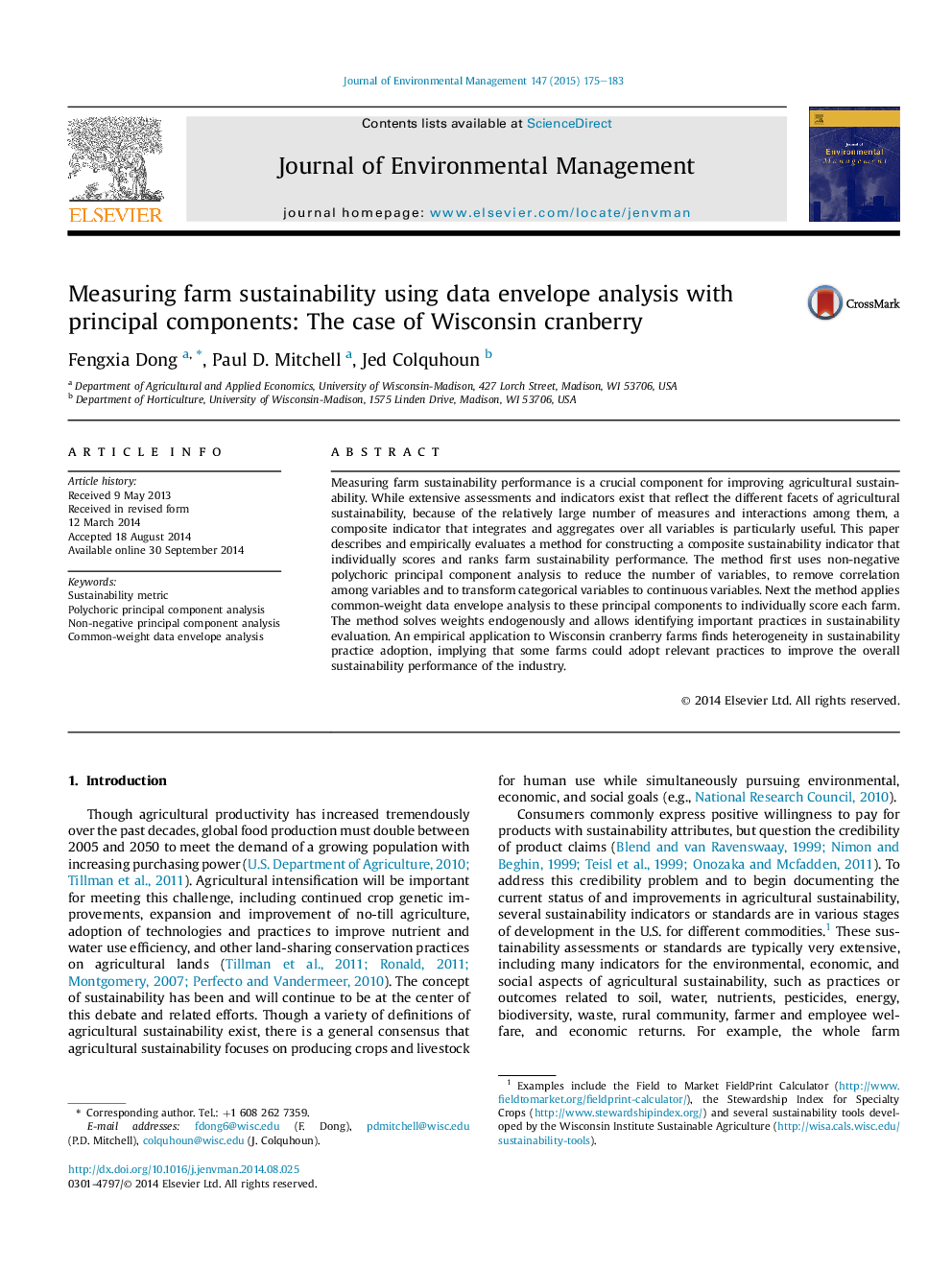| Article ID | Journal | Published Year | Pages | File Type |
|---|---|---|---|---|
| 1055658 | Journal of Environmental Management | 2015 | 9 Pages |
•A composite indicator that ranks farm sustainability performance is constructed.•The method combines non-negative polychoric PCA and common-weight DEA.•The method can be applied to large, correlated, and discrete survey data.•The method allows growers to identify practices to improve their performance.
Measuring farm sustainability performance is a crucial component for improving agricultural sustainability. While extensive assessments and indicators exist that reflect the different facets of agricultural sustainability, because of the relatively large number of measures and interactions among them, a composite indicator that integrates and aggregates over all variables is particularly useful. This paper describes and empirically evaluates a method for constructing a composite sustainability indicator that individually scores and ranks farm sustainability performance. The method first uses non-negative polychoric principal component analysis to reduce the number of variables, to remove correlation among variables and to transform categorical variables to continuous variables. Next the method applies common-weight data envelope analysis to these principal components to individually score each farm. The method solves weights endogenously and allows identifying important practices in sustainability evaluation. An empirical application to Wisconsin cranberry farms finds heterogeneity in sustainability practice adoption, implying that some farms could adopt relevant practices to improve the overall sustainability performance of the industry.
